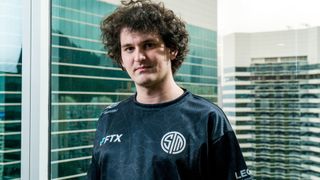Former 'king of crypto' FTX boss to take stand in fraud trial that, so far, seems to be going very badly for him
Sam Bankman-Fried's going for one of the riskiest strategies there is.

The former "king of crypto" Sam Bankman-Fried is currently on trial for fraud in the United States, following the 2022 collapse of his crypto firm FTX. The trial has been running since early October and sees Bankman-Fried facing seven charges total including wire fraud, securities fraud and money laundering, all of which he denies. But by all accounts, things are going terribly.
The first two weeks of the trial have seen a slew of Bankman-Fried's former colleagues, friends, and even his ex-girlfriend line up to testify that the crypto king knew exactly what he was doing when transferring money from FTX to the investment firm Alameda Research (i.e. stealing investor money). Several of these people have accepted plea deals for their own roles in the scandal, as part of which they have to give truthful testimony at this trial.
Thus far their evidence has overwhelmingly supported the prosecution's version of events, and Bankman-Fried's defence team have found little joy in the cross-examinations: particularly notable was the testimony of his ex-girlfriend Caroline Ellison, who said "he directed me to commit these crimes."
So the crypto king is getting ready for his greatest, and possibly final, gamble. It was first rumoured that Bankman-Fried would take the stand when his lawyers began arguing for his supply of certain medications in prison, and now his team has confirmed (via the Financial Times) that he will take the stand in his own defence. A court conference on Wednesday saw Bankman-Fried's lawyer Mark Cohen say that, alongside other defence witnesses, "our client is also going to be testifying."
Bankman-Fried is facing life in prison if convicted, so this is as high-stakes as it gets. It's a move that usually indicates the defence has little else to rest on other than personal credibility. The strategy is to be avoided primarily because defendants are not obliged to testify in their own defence in the first place, and it opens them up to cross-examination by the prosecution: so if Bankman-Fried comes off as anything less than totally plausible in front of the jury, it could be a disaster.
"If the jury does not believe him, it's a guaranteed conviction," retired federal prosecutor Jacob Frenkel told the BBC.
But then, this is a man who took the world along with him when building FTX, so it's not like he doesn't have a track record of convincing people. With the trial going the way it has so far, a Hail Mary may be his best hope. Bankman-Fried could take the stand as soon as today, and the defence could rest by the end of the week.
The biggest gaming news, reviews and hardware deals
Keep up to date with the most important stories and the best deals, as picked by the PC Gamer team.
Bankman-Fried founded FTX in 2019 and by early 2022 the crypto exchange was valued at an astonishing $32 billion. But rumours swirled about its balance sheet before a devastating investigation by Coindesk led to a run on FTX and its swift collapse into bankruptcy with an $8 billion black hole in the accounts, leaving millions of small investors out-of-pocket. Bankman-Fried initially hid out in the Bahamas before being arrested and extradited to the US to stand trial.
Three of Bankman-Fried's former friends and colleagues have pled guilty to the charges they face, and testified that among other things he used FTX money to cover debts at Alameda Research, make private investments and political donations, and underwrite the purchase of properties. It is claimed, and prosecutors have tried to show through document trails, that Bankman-Fried hid these transactions and the relationship between the two firms.
Bankman-Fried's defence says that, as the companies grew exponentially, their client was following "reasonable" business practices in uncharted waters. The former king of crypto even gave interviews following the collapse of the companies, in which he admitted to making mistakes but denied committing fraud, telling the BBC "I don't think I tried to do anything wrong." The trial continues.
Rich is a games journalist with 15 years' experience, beginning his career on Edge magazine before working for a wide range of outlets, including Ars Technica, Eurogamer, GamesRadar+, Gamespot, the Guardian, IGN, the New Statesman, Polygon, and Vice. He was the editor of Kotaku UK, the UK arm of Kotaku, for three years before joining PC Gamer. He is the author of a Brief History of Video Games, a full history of the medium, which the Midwest Book Review described as "[a] must-read for serious minded game historians and curious video game connoisseurs alike."
Most Popular






